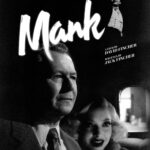
Gary Oldman in the title role, and Amanda Seyfried as a muse-buddy. It’s an interesting film, best viewed after Citizen Kane (the Howdy formula).
[2-minute read]
Anthony Oliver Scott is best known as a movie reviewer for the New York Times. He is a superb writer, enjoyably read even when he’s figuring out what he thinks about a movie I’ve never seen. I’m also excited about his recent book, Better Living Through Criticism: How to Think About Art, Pleasure, Beauty, and Truth, especially after reading a series of his essays, called The Americans. Rather than film, here he offers a fresh look at living writers who are under-read and overlooked – Wallace Stegner, Edward P. Jones (a fascinating oeuvre and a real revelation to me ) and Joy Williams. It’s eye-opening, a real service to someone who wants to better know a work, an author, a nation’s literature. These essays belie the common idea of “criticism”, that it must be acid-flavoured and archly (or furiously) dismissive. They are also wonderfully crafted in themselves, and refute the lazy notion that a critic must be a bitterly disappointed artist.
At my distressingly soon-to-be-departed Ottawa treasure, the ByTowne Cinema, I saw Mank in November. It’s the modern, black-and-white biopic in which Gary Oldman plays the legendary Hollywood screenwriter Herman Mankiewicz, who more or less wrote the 1940 classic Citizen Kane. (Mank argues that it was his baby entirely, which is an old and highly debatable statement; director/star Orson Welles shared the screenwriting credit with Mankiewicz.) I liked the movie and planned to see it again. And I did, in a way, reading Scott’s recent review in the Times. In it were exactly zero stars, no thumbs, not a single tossed tomato, whether rotten or beautifully seasoned, but only well-crafted prose that deepened my understanding and regard for a film, and strengthened my commitment to seeing it again. This is all fine.
But Scott finished with a flourish. In the review’s final paragraph, he describes Mankiewicz, by all accounts a brilliant writer and wit, and his turbulent relationship with Hollywood. He hates and loves the life. He knows he’s a small player in the industry yet feels himself above it. Mankiewicz was striving to bring a higher literary sensibility to the work, and meanwhile was drinking himself into highly public embarrassments and a premature grave. (Pauline Kael once described him as “Hollywood’s loser-genius”.) Scott ends with this dazzling turn, which I keep re-reading:

